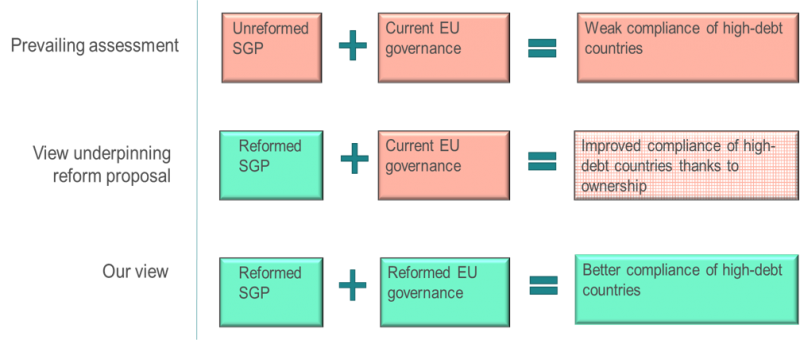


The 2005 reform of the SGP encompassed a number of crucial innovations all of which were meant to make the rules economically more meaningful: (i) the structural budget balance became the key reference for fiscal adjustment and for a sound fiscal position in the medium term, differentiated across countries; (ii) more time for fiscal adjustment in the face of unexpected economic events and/or in exchange for structural reforms; and (iii) codification of ‘other relevant factors’ when assessing the existence of an EDP.
EU gives budget leeway to France ‘because it is France’ – Juncker | Reuters.
https://economy-finance.ec.europa.eu/system/files/2022-11/com_2022_583_1_en.pdf .
The legislative reform proposal of the Commission of 26 April 2023 does not envisage any changes to the existing sanctions. The idea is to work with the current provisions by moderating the amounts of possible fines compared to the maximum set out in legislation.
Initially limited to the comparatively small group of countries eligible for cohesion fund money, conditionality now also covers most EU structural funds and therefore virtually all member states. Moreover, the role of the European Parliament in deliberating a suspension of EU funds has been clarified. The strengthened provisions have not been tested yet, because they entered into force in 2021 after the de facto suspension of the SGP via the severe economic downturn clause.
Two particularly prominent innovations introduced with the six and two- pack reforms of the SGP are the reversed qualified majority voting for new financial sanctions and the comply-or-explain principle.